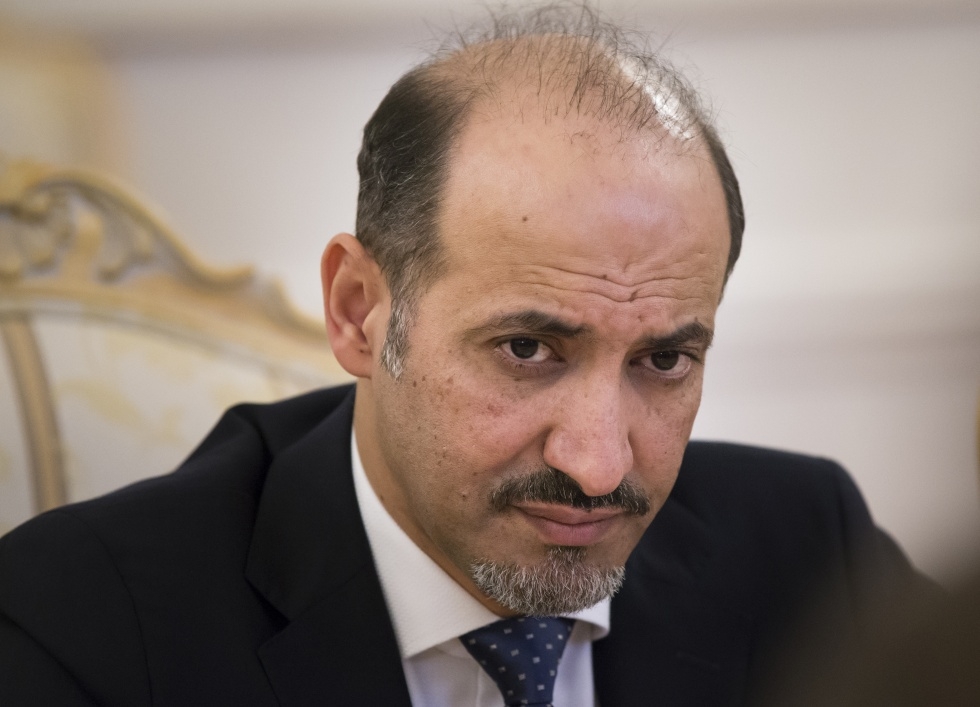Syrian opposition leader to go to China for talks

The head of Syria’s opposition National Coalition Ahmad Jarba will go to China for talks next week, his office said today. Jarba will visit China on April 14, after being invited by Chinese Foreign Minister Wang Yi at failed peace talks in Geneva this January.
Discussions will focus on “the prospects for a political solution” and explain “the positions of the Syrian people” according to a National Coalition spokesperson. The announcement comes two months after Jarba travelled to Russia for similar talks, where Russian Foreign Minister Sergei Lavrov said “Syrians should be allowed to search for a peaceful solution to the ongoing civil war without any outside pressure”.
Russia is an ally of Syrian President Bashar al-Assad who has been embroiled in a three-year uprising against his rule with Moscow blocking Western-backed attempts to impose UN sanctions on the Syrian regime. The West has supported the rebels but has only officially provided non-military assistance, despite repeated calls by the Syrian opposition for action.
The position of China on the Syrian conflict is not clear, although they have been criticised for vetoing at least three resolutions against Syria at the UN Security Council. UN-backed attempts to broker an agreement between the two factions have so far failed with the first round of Geneva talks collapsing in 2012 and Geneva II failing in February.
Wang met with Jarba at the January talks where he outlined China’s support for a resolution, but remained vague on the terms.
New MEE newsletter: Jerusalem Dispatch
Sign up to get the latest insights and analysis on Israel-Palestine, alongside Turkey Unpacked and other MEE newsletters
“China respects and supports all proposals for political settlement as long as they are in line with the interests of the Syrian people and generally acceptable to the parties in Syria,” Wang said in a statement following the meet.
Before the outbreak of the 2011 uprising, China and Syria enjoyed strong economic ties. Syria imported more goods from China than from anywhere else with bilateral trade totalling $2.2bn. A year later this was down 50 percent to $1.1bn in 2012, with China slipping to third place.
China does not have significant financial interests in Syria but analysts believe it is nonetheless concerned about the conflict. China expert Shannon Tiezzi recently wrote in The Diplomat that “China has a definite interest in making sure the Syria conflict does not spill over to affect the broader Middle East.” However, she argued that political or military intervention was unlikely due to “China’s foreign policy stance [being] built on the platform of non-interference”.
The meeting in Beijing will take place exactly two months after peace talks broke down in Geneva, with the conflict in Syria now in its fourth year and showing little sign of coming to an end.
Middle East Eye delivers independent and unrivalled coverage and analysis of the Middle East, North Africa and beyond. To learn more about republishing this content and the associated fees, please fill out this form. More about MEE can be found here.

